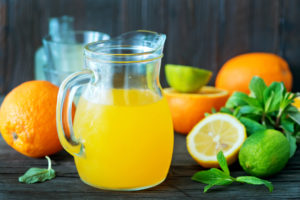 We've all heard the saying, You Are What You Eat, and that's particularly true for your teeth and gums. Several factors affect wear and tear on tooth enamel. Diet is a major factor, with certain foods increasing the likelihood that your enamel will become discolored or decayed. The team at Bel Air Orthodontics suggests that you pay close attention to the foods you eat to keep your pearly whites looking healthy and clean.
We've all heard the saying, You Are What You Eat, and that's particularly true for your teeth and gums. Several factors affect wear and tear on tooth enamel. Diet is a major factor, with certain foods increasing the likelihood that your enamel will become discolored or decayed. The team at Bel Air Orthodontics suggests that you pay close attention to the foods you eat to keep your pearly whites looking healthy and clean.
What causes enamel damage?
Tooth enamel is primarily composed of minerals that are strong but susceptible to highly acidic foods. When acid reacts with the minerals in enamel, it can result in tooth decay. Strongly pigmented foods can also damage enamel by discoloring the surface of the tooth. Acidic foods are the greatest source of enamel damage. To determine whether a food is acidic, look up its pH. Scientists use pH, on a one-to-seven scale, to define the relative acidity or alkalinity of a substance. Foods with low pH levels, between a one and three, are high in acidity and may damage your enamel. Foods with high pH levels, such as a six or seven, are far less likely to cause enamel harm.
So which foods should you avoid?
Watch Your Citrus Intake
Even though a squeeze of lemon or lime can turn a simple glass of water into a fun beverage, it's not always the best choice for your mouth. Fruit juices, especially citrus, apple, and berry varieties, are loaded with the kinds of acids that wear down tooth enamel. Of course, juices also have some great-for-you qualities, too—like vitamins and antioxidants, so don't write them off completely. Just drink them in moderation. Frequent fruit juice consumption has been linked to an increased risk of enamel erosion. As an extra measure, try eating them with a meal — as opposed to on their own — so they're less likely to harm your teeth. Also remember to use a straw, rinse afterward, and choose calcium-fortified juices that may pose less of a hazard to tooth enamel.
Sugary Foods Are Scary For Your Teeth
We all know sugar is bad for our teeth, but it’s important to know why. The bad bacteria in your mouth feed on sugars to create acids and cavities are an infection caused by acids. The point here is that sugars in your mouth are often the first step in cavity formation. It’s virtually impossible to eliminate all sugars from your diet, but it’s important to try to minimize sugar intake (especially refined sugar) as much as possible. It’s also crucial to not let sugar linger in your mouth for a long time. So, brushing your teeth after meals or at least drinking lots of water is vital.
Ice Is For Chilling, Not Chewing
You’d be surprised at how many people think ice is good for their teeth. It’s made of water, after all, and doesn’t contain any sugar or other additives. Chewing on hard substances can leave your teeth vulnerable to a dental emergency and damage enamel. Break the habit and enjoy water in its pure, liquid form. Your teeth and your braces will thank you.
Not All Coffee Is Good For You
In their natural form, coffee and tea can be healthy beverage choices. Unfortunately, many people can’t resist adding sugar. Caffeinated coffee and tea can also dry out your mouth. Frequent drinks of coffee and tea may also stain your teeth. If you do consume, make sure to drink plenty of water and try to keep the add-ons to a minimum.
Sticky Foods Are Your Mouth's Worst Nightmare
Sticky foods are off-limits for those and braces since they can damage brackets and wires. Sticky foods can also damage your teeth since they tend to stay on the teeth longer than other types of food. If you find yourself eating dried fruits or trail mix often, make sure to rinse with water after and to brush and floss carefully.
Swap Out Soda With Water
Guess what? Sugar isn't the biggest culprit when it comes to a fizzy drink's impact on teeth. These beverages—diet or not—strip minerals from tooth enamel because of their high acid content. Caffeinated beverages, such as colas can also dry out your mouth. If you do occasionally consume soft drinks, don't sip them all day long and try to drink alongside a cup of water.
Watch out for sports drinks
They may sound healthy, but sugar is a top ingredient for many sports and energy drinks. The American Academy of Pediatrics says sports drinks are especially bad idea for adolescents and young adults whose tooth enamel is less mature and more porous. Before your next sip, check the label to make sure your drink of choice is low in sugar or drink water instead.
With some easy preventive measures, your teeth will stay strong, and healthy for years to come! Give us a call at Bel Air Orthodontics to learn more.
